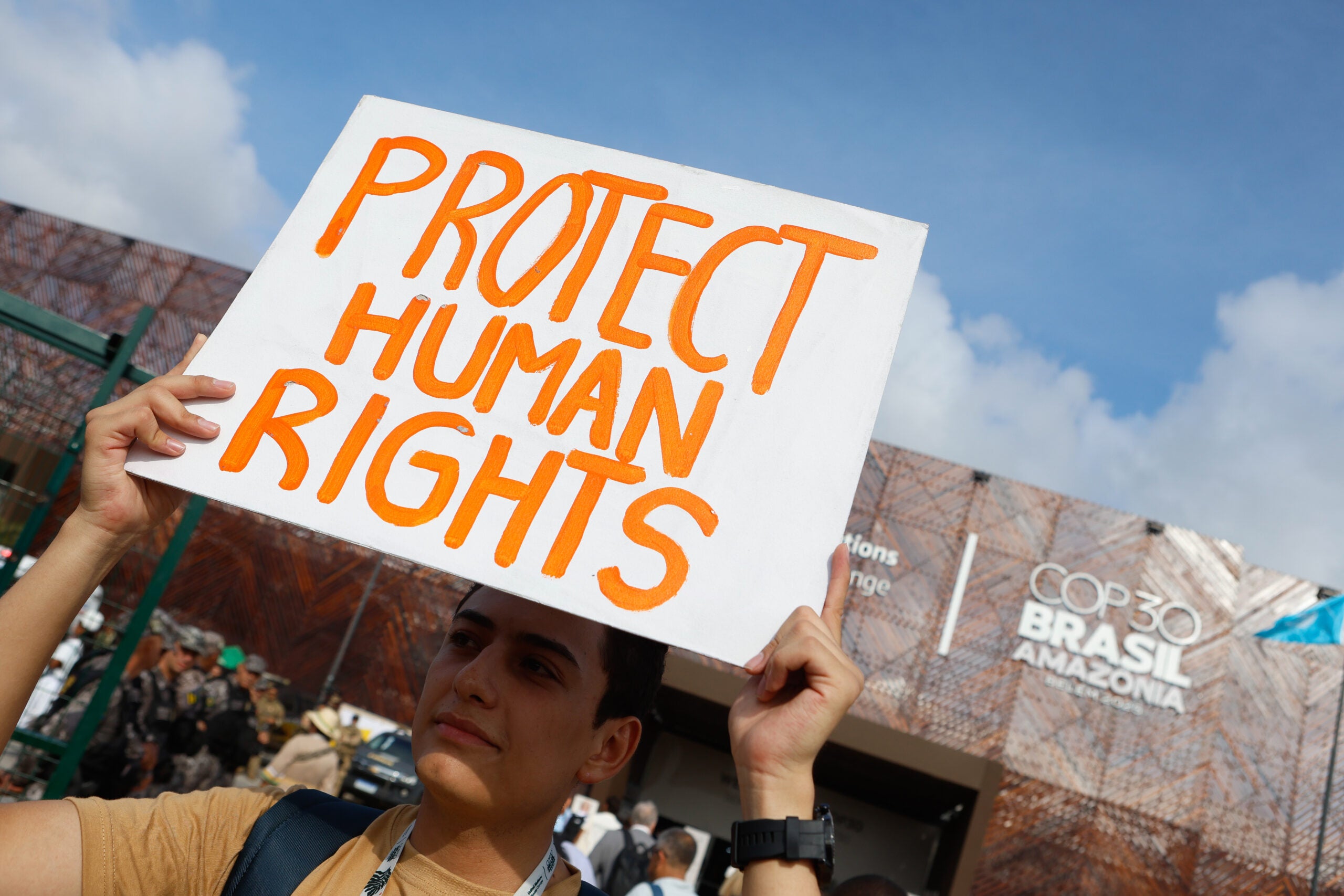Inter-American Court to World Leaders: Protecting Human Rights Requires Reducing Fossil Fuel Use
Even after 30 years of climate negotiations, a historic human rights opinion urges governments to do more to fight climate change.
As world leaders conclude the 30th UN climate change conference, the Conference of Parties (COP30), in Belém, Brazil, this week, many may be left wondering what tangible steps can be taken next to tackle the climate crisis. We are in a pivotal moment to translate countries’ legal duties into urgent climate action. The conference comes on the heels of the Inter-American Court of Human Rights’ historic climate advisory opinion, issued on July 3, 2025. This opinion clarified that governments must go above and beyond whatever commitments they make in Brazil.
International human rights law also creates binding obligations on countries to prevent, reduce, and remedy the harms of the climate crisis. The opinion will act as a guidepost in the months and years to come, providing a powerful tool for advocates throughout the Americas and the world seeking to ensure that their governments’ climate commitments align with international law.
The Inter-American Court is a human rights body of the Organization of American States. Its rulings are important interpretations of international human rights norms and are legally binding for many governments in the Western Hemisphere.
According to the advisory opinion, governments must set binding mitigation targets that are as ambitious as possible, identify specific deadlines, progressively increase over time, and take into account the best available science. Governments must also take steps to reach these targets by reducing their emissions across their economy. This can be accomplished, for example, by reducing the use of fossil fuels and methane emissions from oil and gas production. Failure to set appropriate targets or reduce emissions could cause a country to be responsible for violating its human rights obligations.
For a deep dive into the Inter-American Court’s advisory opinion and its implications for international climate policy and beyond, Earthjustice and our partners developed a comprehensive toolkit to understand and implement policies backed by these new international guidelines. We invite you to read Climate Justice and Human Rights: Legal Standards and Tools from the Inter-American Court’s Advisory Opinion 32/25.
Earthjustice is a contributing author alongside more than 20 environmental, human rights, and academic organizations and experts. In 14 briefs, this new publication provides an in-depth analysis of the advisory opinion’s key contributions, its legal and practical applications, and the gaps and opportunities this landmark decision presents. The brief topics reflect the thematic areas articulated by the court and cover foundational human rights principles related to climate change, state and corporate obligations, rights of affected people, and environmental democracy and remedies.
In addition to providing this analysis, the briefs also present arguments, standards, and practical recommendations aimed at strengthening climate litigation and advocacy strategies. Earthjustice will draw on this resource in supporting our partners to hold countries accountable to the commitments they make at COP30 and in pushing for more ambitious action.
The International Program partners with organizations and communities around the world to establish, strengthen, and enforce national and international legal protections for the environment and public health.
Miranda Fox
Public Affairs and Communications Strategist, Earthjustice
mfox@earthjustice.org
